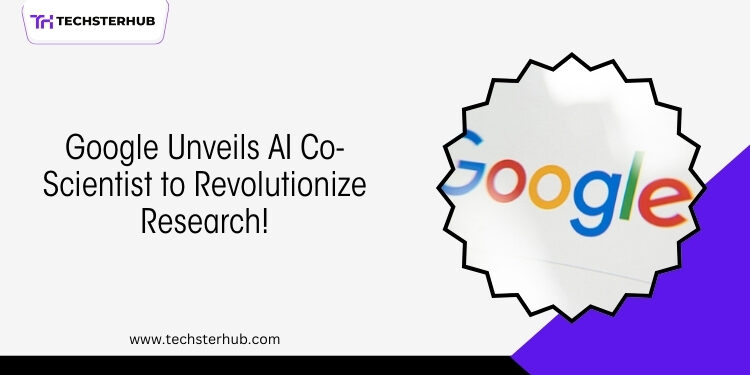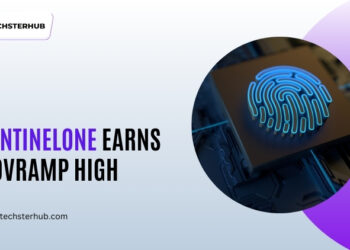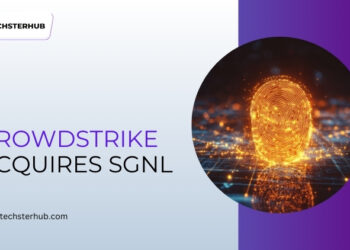Google’s latest creation in artificial intelligence represents a significant development as they have launched an AI co-scientist to support research scientists. The AI tool has been designed to transform research into a quicker and more precise process while increasing overall efficiency. Scientists across multiple disciplines including medicine and environmental science can utilize this technology to analyze complex data sets while identifying new patterns and developing innovative research hypotheses. This article examines the nature of the AI co-scientist tool while explaining its operational methods and its potential impact on future scientific research.
What Is an AI Co-Scientist?
The AI co-scientist represents an artificial intelligence program that serves as a research assistant working alongside humans to accomplish tasks including data analysis, idea creation, and experimental execution. A co-scientist AI works in tandem with researchers to facilitate problem-solving while interpreting data and making informed decisions, setting it apart from traditional AI which focuses on task automation and recommendations.
Google’s AI co-scientist exceeds mere information processing capabilities. This AI system represents a sophisticated partner for researchers by offering valuable insights and suggestions to advance scientific research. This AI system has the potential to serve as a critical team member within global research laboratories.
How Does Google’s AI Co-Scientist Work?
Researchers receive assistance from Google’s AI co-scientist which employs powerful algorithms and machine learning techniques on large datasets to help them in multiple ways. The following section outlines the primary functions of the AI tool.
- Data Analysis: The AI co-scientist primarily functions by analyzing extensive datasets. Human processing is often inadequate for handling the massive data sets produced by scientific research. The AI processes large datasets efficiently to detect significant trends and patterns which may remain unnoticed by humans.
- Hypothesis Generation: The AI assists researchers in creating new hypotheses through analysis of existing research and data. The AI identifies patterns within data which allows it to propose new research directions that researchers might not think of on their own.
- Experiment Design: During experimental work scientists must create tests that demonstrate scientific validity and reliability. The AI system enables researchers to design their experiments more effectively by recommending specific test variables and optimizing their experimental procedures.
- Literature Review: One of the primary responsibilities of researchers involves examining extensive scientific literature. An AI co-scientist scans a large volume of research papers and provides summaries of essential results which enables researchers to keep abreast of new developments in their field.
- Collaboration and Communication: Scientists can work together more easily through this AI tool because it recommends related research and helps connect them with field experts. The tool enables scientific teams to divide complicated problems into clear steps which enhances both communication and teamwork effectiveness.
Why Is This Important?
Google’s AI co-scientist represents a significant advancement in artificial intelligence applications for scientific research support. This development holds significant importance for several key reasons:
- Faster Discoveries: Researchers gain more time for creative work when automation takes care of lengthy tasks such as data analysis and literature reviews. This advancement will accelerate research workflows which will enable scientists to make discoveries at a faster pace.
- Improved Accuracy: Human researchers are prone to errors and may miss critical information when they handle extensive datasets. The AI reduces error rates by conducting more comprehensive data analysis to identify patterns that humans could overlook.
- Unlocking New Insights: The AI system can process extensive scientific literature along with data from multiple research fields. With this expansive knowledge researchers can identify previously hidden connections between different academic fields which appeared unrelated before.
- More Accessible Research: Scientific research requires complexity management because data analysis and hypothesis development present significant challenges to certain researchers. An AI co-scientist creates accessibility for these tasks which benefits researchers who are new to the field or who operate without large research teams.
- Collaboration Across Disciplines: Scientific breakthroughs often emerge from collaborative efforts between experts in different fields. The AI co-scientist developed by Google helps cross-disciplinary thinking by recommending research from different fields which assists scientists to broaden their knowledge beyond their specialized areas.
How Does This Benefit Researchers and Society?
The implementation of an AI co-scientist provides important advantages for researchers and society overall.
- For Researchers:
- Time Efficiency: Scientific practitioners gain valuable time savings by automating monotonous tasks which enables them to devote more attention to experimental work and theoretical advancements.
- Better Insights: By analyzing diverse data sources and proposing new methods researchers receive insights which they could not uncover independently.
- Support for Collaboration: The AI system enables researchers to establish connections with scientific peers which leads to forming new partnerships and generating innovative ideas.
- For Society:
- Medical Advancements: Medical research benefits from AI because it detects patterns in patient data that can result in discovering new disease treatments and cures. The AI technology enables researchers to analyze genetic information which provides insights into diseases at the molecular scale.
- Environmental Solutions: The AI co-scientist enables researchers investigating climate change and environmental degradation to analyze large environmental datasets which supports the development of improved sustainability and conservation methods.
- Scientific Knowledge Expansion: The acceleration of research through AI technology will lead to more frequent discoveries in multiple disciplines which will result in expanded human knowledge and improved global living standards.
The Future of AI in Research
Google’s AI co-scientist represents an initial step towards a potential revolutionary transformation in scientific research methodology. The ongoing advancement of AI technology will deliver increasingly sophisticated tools to support researchers throughout their entire workflow which includes data collection and the creation of pioneering theories.
Future AI systems will work alongside researchers to generate new scientific ideas and innovative technological solutions. AI systems will not supersede human scientists in creativity and critical thinking but they possess the potential to become powerful instruments that boost scientific capabilities and discover new opportunities.
Conclusion
Google’s creation of an AI co-scientist represents a significant advancement in scientific research development. This AI tool assists researchers in data analysis, hypothesis generation and experiment design which accelerates discovery processes while enhancing accuracy and revealing fresh insights. The ongoing development of artificial intelligence technology promises to revolutionize scientific research by making it more efficient and accessible for scientists worldwide.
Future advancements in AI could significantly enhance scientific discovery processes while addressing critical global challenges in health and environmental sectors. Google’s AI co-scientist creates a critical shift in how artificial intelligence connects with human innovation by enabling previously impossible research possibilities.











